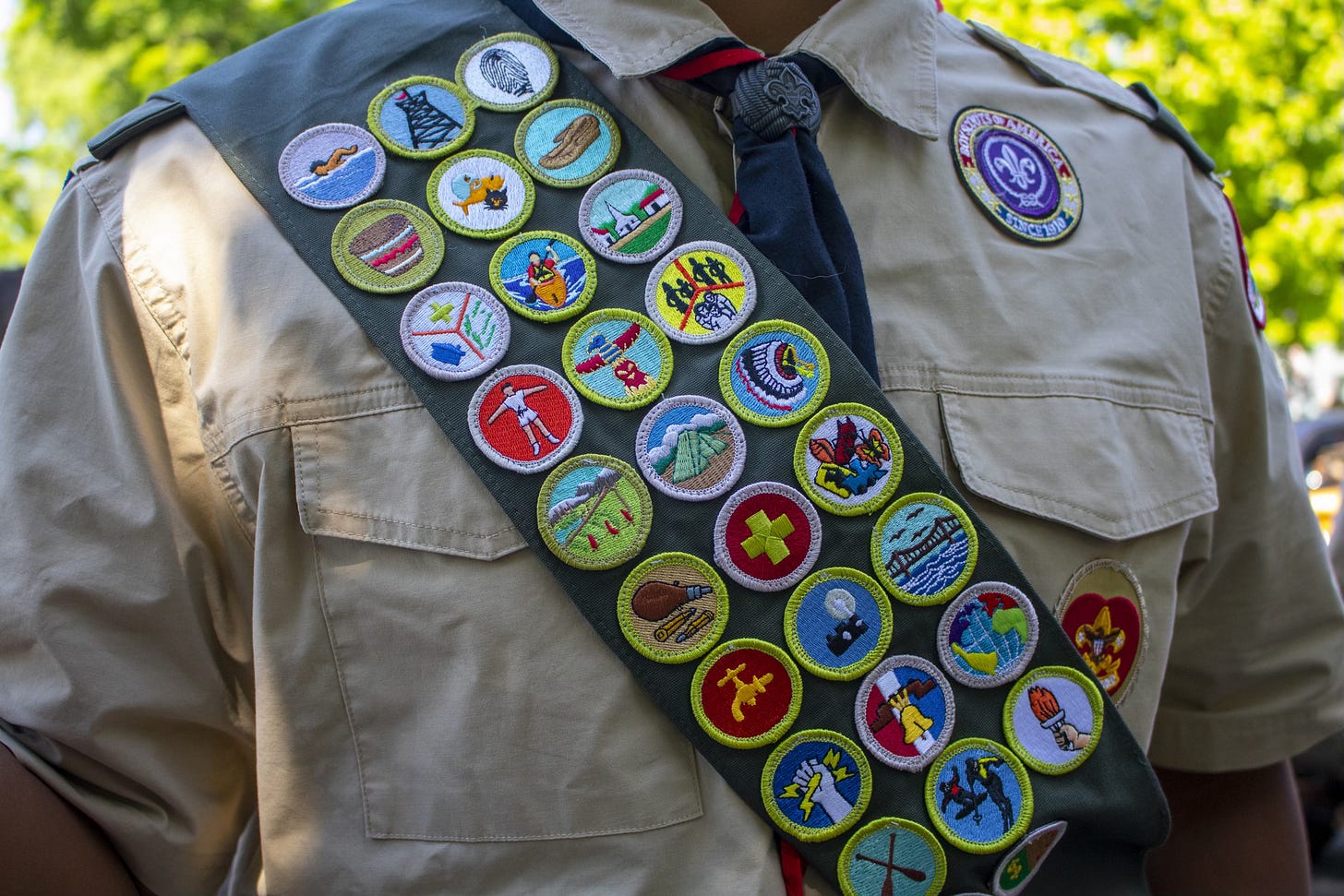Beyond MCAS into Scouting: Rethinking High School for Real-World Readiness
How Scouting and Project-Based Learning Could Transform Education Into a Path to Wholeness, Not Just College
Last November, the voters of Massachusetts passed a ballot initiative to end passing the Massachusetts Comprehensive Assessment System test as a high school graduation requirement from public schools. MCAS, introduced in 1993, required students at nearly every grade level to be tested annually on their learning, primarily in math and English, and later in high school, in science. Since school system test scores were made public and towns were compared with one another, taxpayers and politicians often used the results to judge teacher competency. This led to rampant “teaching to the test,” where many schools devoted an inordinate amount of time preparing their students for the exams. Teachers, administrators, and parents all hated the system. So, when the opportunity arose to remove the graduation requirement, voters overwhelmingly supported the change.
(The MCAS is not going away, however. Just the graduation requirement.)
So what now?
One high school teacher, writing in Boston Globe Magazine this week, argues that we need to rethink what high school education is all about. We’ve turned high school into a college preparatory program based on the assumption that college is the best path and ultimate destination of all students. She writes:
How did it get this way? The recipe was fairly straightforward: The promises of good-paying jobs, with better work-life balance, and even better long-term health and happiness, were based on a college degree. That promise was made to virtually everyone coming up through the public education system who could exhibit mastery of a very narrow set of skills. Over time, high schools were assessed on how many of their graduates ended up in colleges, and their mission essentially narrowed to college preparation.
But, she argues, a high school diploma should not just be a means to an end; it should be an end in itself. It should provide value in the here and now, not just in the future. Increasingly, people are recognizing that college is not for everyone and that there are good-paying careers that don’t require four years of debt. Why not, she writes, transform high school from “the traditional ‘lecture, read, study, and test’ format to something that looks and feels a lot more like participation in the adult world?”
The author suggests project-based learning as an alternative, offering examples such as planning a fundraiser for a local food pantry. This kind of activity is a multidisciplinary exercise, incorporating skills in math, English, project management, and more, while providing tangible benefits to the community. Other examples include “researching and writing about local folklore through museum visits and interviews with longtime residents,” or “having students create and teach content to younger students.”
As I read these idea, one thing immediately came to mind: Scouting. This is exactly what my five kids have all been doing through Scouting as they pursue merit badges and advance in rank toward Eagle. Melanie and I have long touted the educational benefit of Scouting to other homeschooling families. With nearly 140 merit badges covering subjects from American Heritage to Mining to Digital Technology to Aviation to Plumbing, they cover a wide range of subjects. Beyond the merit badges, Scouting provides camaraderie, self-confidence, regular outdoor activities, and the development of soft skills. Leadership training is especially outstanding with older scouts teaching and leading younger ones while serving as mentors and role models. I’m constantly amazed at how a newly elected senior patrol leader matures into a confident and capable individual by the end of their term.
Imagine if we opened the doors of education to new ideas–ways of teaching our kids not just academic subjects, but also fostering their human formation, preparing them to become whole adults who actively contribute to a better society. In contrast, the current system seems focused on producing future “units of production” as corporate human resources.
There are pitfalls and obstacles, of course. Our public education system is governed by the twin titans of politicians and unions, both skilled at meddling, regulating, and diluting good ideas to fit their agendas. I wouldn’t want Scouting to be regulated into something unrecognizable by such bureaucracy.
Still, even if Scouting can’t formally integrate into the education system, it remains an incredible opportunity for all young men and women to learn, grow, and thrive. I’ve seen my own children–including some who are neurodivergent–transform through their Scouting experiences. More children should have the chance to benefit from this remarkable program.





Catholic Heritage Curriculum's "High School of Your Dreams" planning guide incorporates Scout badges. At least, it did in the copy I have, the revised 2013 edition.